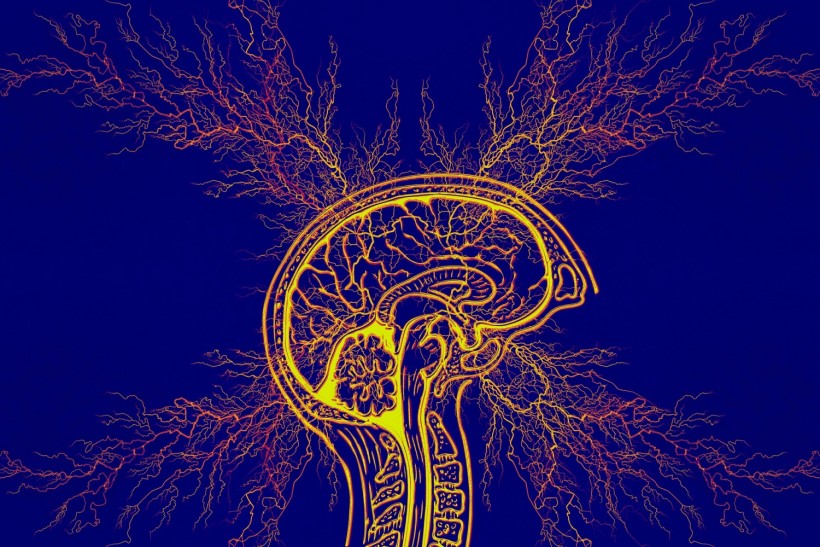November is National Epilepsy Awareness Month and filmmaker Eamon O'Rourke would like everyone to learn more about the neurological disorder he and more than 3 million other Americans suffer from.
"I am epileptic and have several different forms of epilepsy, including one that is extremely rare," Eamon O'Rourke says. "Luckily, I don't have photosensitive epilepsy. The lighting and that kind of stuff is not a problem. But for me, I have seizures when I'm entering or exiting my sleep cycle primarily."
If O'Rourke doesn't get enough sleep or he's feeling stressed, he says the likelihood of seizures coming on is significantly heightened, which could get challenging as a key player in the film industry. An average day on a film set can run 12 to 18 hours or even longer.
"Working on a film set and not experiencing stress and getting lots of sleep is very, very unlikely," Eamon O'Rourke says. "The work in and of itself raises a lot of the risk factors for me. There are certain things I'm not allowed to do. I'm not allowed to drive a car. I'm not allowed to operate heavy machinery - things like that, which obviously gets in my way in many parts of my life, and a little bit working on film sets." Still, the disorder is no match for his creative genius: Asking For It scored a coveted spot at the 2021 Tribeca Film Festival, a big deal for a budding filmmaker like O'Rourke.
Epilepsy Education Remains a Key Part of O'Rourke's Mission
While O'Rourke says epilepsy keeps him from being able to do several things, he remains hopeful that speaking out about the disorder can raise more awareness of it. In addition to raising awareness about epilepsy, he is also already an outspoken advocate for a variety of noteworthy causes, including the Black Lives Matter movement and Narcan distribution to alleviate the opioid crisis.
"Epilepsy remains a relatively poorly understood medical phenomenon," he explains. "I have been a part of a lot of intensive studies and research efforts, including long hospital stays where seizures are intentionally induced while I am hooked up to live EEG/MRI machines for the collection of data."
The screenwriter also says epilepsy is a huge part of his identity and giving him a front-row seat to the mysteries of neurology, namely the brain. "It's hard to describe, but the experience of having a seizure is unlike anything I have ever experienced in the perceptual reality we navigate day to day," he says.
He recalls once having a seizure during production. "I fell and hit my head pretty good - that's kind of the most dangerous [thing]," he says. "Obviously, there's a little bit of danger with choking and things like that. But I had been standing up because I was very tired and I fell and hit my head on the side of a bathtub. It was a really, really difficult experience."
Eamon O'Rourke Says Even Brief Seizures Can Be Jarring
"My seizures range from 45 seconds to 10 or 15 minutes long," the Brooklyn, New York-based moviemaker says. "And it leaves your whole body sore. I can't move certain limbs, some of my joints and things that are far too distressed from having been over-flexed for an extended period of time. It really immobilizes you in that way."
He also likens the experience to having one's brain microwaved or getting struck by lightning. "It really causes a lot of confusion and it's very, very difficult to perform mental tasks that normally are no problem," he explains. "You can lose connection with language and things like that for periods of time. It's unfortunate for that to happen when you're putting together a movie."
When Eamon O'Rourke does have a seizure, he says he typically takes 24 hours or longer to take a break from the work he's doing - but that's not always possible, and it can become extremely difficult with the fast-paced demands of filmmaking.
"Everything is already set up. We're going to be shooting in five hours and we can't cancel the day," he says. "There's no time to push things. Everything is extremely tight timewise. That was a really, really hard couple of days for me."
Eamon O'Rourke, who made his directorial debut with Asking for It and has worked on a slew of other film sets over the past 10 years, says he initially didn't want other actors or people on set to know about his seizures because he didn't want people to treat him differently or worry about him - a reality for many who suffer from chronic conditions.
"It's a combination of going through something very difficult, physically and mentally and emotionally, and also trying actively to not let people know that, which can be a bit alienating and kind of a lonely experience," he confides. "It's just this very difficult storm of elements while also trying to execute a day that requires a lot of movement and a lot of mental focus. I was very lucky that there were a few people who I knew before who I was able to talk to about it. I wasn't completely by myself and that was very helpful, but it was one of the hardest that I've had to push myself to do certain things."
Eamon O'Rourke says having a deep passion for writing and creating movies is what keeps him so driven.
"Some of it's a little easier when it's just something you love to do," he adds. "I would say that that experience [of having the on-set seizure] is something that concerns me about the work, but now I know that I'm able to do it. Just the process of doing it is very, very draining. After finishing that week, I pretty much slept the entire weekend, almost straight through, because you get zapped."
Self-care is also important to the progressive multimedia creator. He admits he spends any time away from work relaxing. "I'm a big relaxer. When I'm not doing the work, I really try to chill as much as possible," O'Rourke says. "That often consists of watching movies. I love video games, I play a lot of video games. I think that there's a very interesting merging of video games and film that I think we'll experience. We'll see some very cool combinations of those mediums in the next chunk of years."
© 2024 NatureWorldNews.com All rights reserved. Do not reproduce without permission.
* This is a contributed article and this content does not necessarily represent the views of natureworldnews.com






